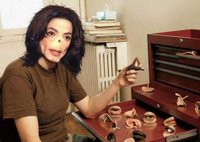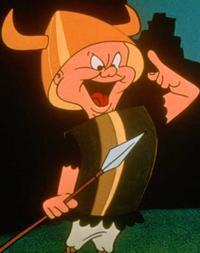
Within the right venue, I love Dean Koontz.
What's the right venue?
Well, since you (cosmically) asked, I'll tell you.
I live in Cleveland. In Cleveland, weather pretty much blows about 78% of the time. I live 37 miles from work. When the weather is nice, it takes me about 50 minutes to get there. When it blows (78% of the time, doncha know), it takes me an hour (or more) to get there...which leaves four choices for mental meltdown avoidance during the long commute:
1) Listen to talk radio. This would work, if talk radio in Cleveland wasn't ubiquitiously Rush Limbaugh, Jim Rome, or their many ditto-clones.
2) Listen to music. This works -- except that music
requires singing along, and since my voice hurts when I sing along, this is the masochist's choice. By the way, ask me what a sadist does. What does a sadist do, you (cosmically) ask? Beats me.
3) Listen to myself. I'm not so sure, however, whether talking to oneself is the road to breakdown avoidance or a sure symptom of it having already occurred.
4) Listen to books on tape.
I choose to listen to books on tape most days.
By the way, I only ever listen to unabridged versions. If an author had meant for his/her book to be abridged, they'd have written the damn thing shorter. I never understood abridgement. Why would anyone even
be a reader if they didn't love the written word and respect the author's craft? And if one does love the written word and respect the author's craft, why would one participate in an eviscerated version of it? I digress, however.
Books on tape are (in Tedworld) best when they are plot-driven. The kind of books I may choose to read at home (dense literary works with strong characterization and layered resonance) may not always be the best books for driving -- driving does, after all, require at least a bit of mental engagement. Listening/reading to Stephen King, for example, works well. If one occasionally misses a paragraph of the (extremely fat) King verbiage (because, for example, one of the many inadequately prepared drivers in Cleveland has plopped themself in one's way), one hasn't missed too too much.
So. Under the aegis of listening (with about 88% engagement) to a book on tape while driving, I love Dean Koontz. He writes page turners, with passable dialogue and impeccable plotting. He creates situations of great variety and ingenuity -- and he doesn't require so much concentration that one might drive into an abutment (and doesn't the word "abutment" sound vaguely dirty?).
Mind you, he can drive you nuts sometimes. His dialogue can be solid, but occasionally (or perhaps a bit more than occasionally) he lets precious, cute, TV-cop-banter substitute for actual conversation. Too, he is a list-maker. Over and over again, instead of writing, for example, "She lay on the floor amongst the spilled candy", he'll write "She lay on the floor, surrounded by Milk Duds and Snickers and Goobers and Milky Way bars, by Ike and Mikes and Fig Newtons and SweetTarts." Yeesh. These sentences (or, sometimes, entire paragraphs) are excellent times to roll your eyes, stop listening, and decide which lane to choose (and to flip off other drivers, as necessary).
I read him, occasionally, at home and on paper. He's okay at home and on paper. He's excellent, though, in the car. I just finished Book Two of his "Frankenstein" series (soon to be a trilogy, I assume) (look for a review later). It wasn't bad -- it was typical Koontz.
Dean Koontz, like John Grisham, was meant to be listened to.
















